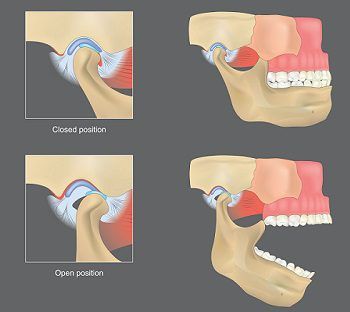How to Manage TMJ Disorders?
Temporomandibular joint disorders (TMJ) cause discomfort and pain in the jaw joint and associated muscles. Studies point out that TMJ disorders have affected over 10 million Americans. However, it is possible to manage TMJ disorders if you adopt the correct practices. We all make some everyday facial movements to function correctly. These include simple activities such as laughing, smiling, talking and chewing. Imagine how painful these movements would become if you suffer from TMJ disorders.
While some TMJ symptoms can fade away within a few weeks to months; however, some even aggravate with time. These painful conditions can worsen due to certain behaviors or harmful habits that strain neck and jaw muscles. This article will adequately guide you to relieve your TMJ symptoms and get rid of extra pain. So, let's get started.
What are TMJ Disorders?
TMJ disorders refer to conditions that affect jaw joints, surrounding muscles, and ligaments. They are caused mainly by an improper bite, trauma, arthritis, joint erosion, chronic teeth grinding, and structural jaw issues.
TMJ disorders can be difficult to diagnose; however, the doctor can still examine you for swelling or tenderness. The general health physician usually refers your case to an ENT specialist or a dentist. Different imaging tests can diagnose TMJ disorders, including MRI, CT scan, and X-rays. The symptoms of TMJ disorders include:
- Pain felt in neck or face
- Stiffness in the jaw muscles
- Wearing down the teeth
- Headaches
- A shift in the jaw
- Ringing in the ear
- Locking of the jaw
- Restricted jaw movement

Best Practices for Managing TMJ Disorders:
The pain caused by TMJ disorders severely disrupts the quality of life. For many people, TMJ disorders' symptoms won't last long. The symptoms can become chronic for others, and they must live with the pain and discomfort throughout their lives. Fortunately, a few ways can help relieve your symptoms without surgical options. Here are five best practices for managing TMJ disorders of mild nature that help reduce pain in the facial muscles. Let's get to know these.
- Correct Your Posture
Poor posture dramatically contributes to the development of TMJ disorders. It causes your lower jaw to protrude forward and create a bad bite. Therefore, improve your posture to help manage the pain caused by TMJ disorders.
- Do not sit idle continuously to cause more pain in your jaw.
- Choose a chair with back support while working.
- Set your seat upright while driving.
- Keep Your Muscles Relaxed
It would be best to keep your jaw muscles as relaxed as possible. This will help alleviate the symptoms of TMJ disorders. Minimize jaw movements such as yawning, chewing, yelling, laughing, and singing.
- Minimize Daily Stress
Relax your jaw by doing activities like yoga which puts less stress on your muscles and relaxes your jaw. Gardening is one of the best exercises that help in managing TMJ disorders by calming your mind and relaxing your face.
- Invest in Jaw Exercises
There are a few jaw exercises that help in managing TMJ disorders. These include stretch exercises, relaxation exercises, and strengthening exercises. These contribute to elevating mobility in your jaw joints. However, TMJ exercises should only be done by consulting your health professional for maximum benefits.
- Get Rid of Bad Habits and Avoid Certain Foods
Some habits and foods also contribute to developing TMJ disorders. Therefore, you must get rid of them to reduce the pain. Some of these include:
- Teeth grinding or clenching
- Nail biting
- Chewing baby cheeks
- Putting your jaw to rest on your hand
- Yawning
- Crunchy and hard foods
- Taking large bites
- Chewing gum, etc
Final Thoughts
TMJ disorders make it difficult to practice basic oral hygiene and lead a happier life. However, there are a few things that help manage TMJ disorders of mild nature. If you suffer from TMJ disorders, the above practices can make your life easier.
Contact your Danville dentist, Dr. Hoss Abar, DDS, MSD, at Danville Orthodontics to learn more about TMJ Disorders.
Resource:
*This media/content or any other on this website does not prescribe, recommend, or prevent any treatment or procedure. Therefore, we highly recommend that you get the advice of a qualified dentist or other medical practitioners regarding your specific dental condition*
